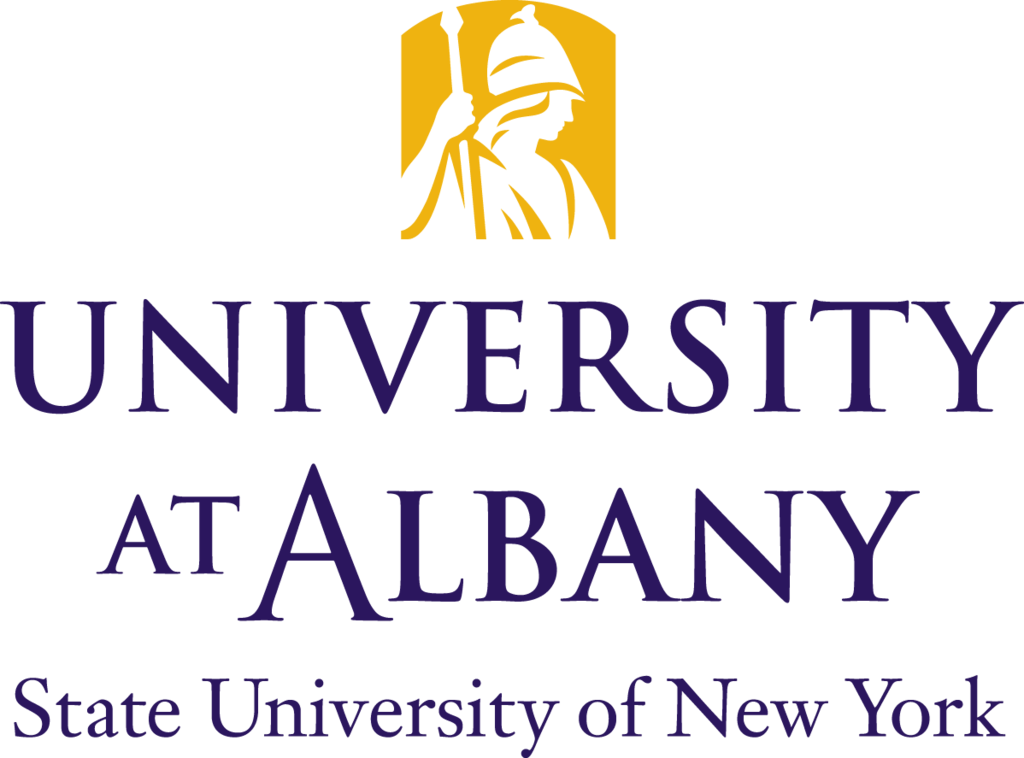Contact: Vincent Reda, 518-442-3078
Improved Forecasts and Research Promised Under New NWS-UAlbany Partnership
Improved warning and forecast capabilities for the National Weather Service (NWS) and enriched research and academic programs in atmospheric sciences for the University at Albany are expected under a new and enhanced partnership between the National Oceanic and Atmospheric Administration (NOAA) and UAlbany.
The new partnership, known as the the NOAA-University at Albany Cooperative Institute for the Prediction of Hydrometeorological Hazards in the Northeastern United States, was recently created by an agreement signed by NOAA administrator D. James Baker and UAlbany President Karen R. Hitchcock.
According to Eugene P. Auciello, Meteorologist-in-Charge of the regional NWS Forecast Office, the Institute will "ensure a continued high-level of collaboration on weather-related research between the National Weather Service and students and faculty at the University at Albany.
"On the path to achieving this goal," added Auciello, "significant benefits to science, education, professional development, and public service will be realized."
Formally referred to as the Cooperative Institute at the University at Albany, the benefits of the new institute to the NWS include:
o - Increased professional development of the NWS forecast staff;
o - Improved warning and forecast operations in support of hazard mitigation efforts; and,
o - Development of future generations of NWS personnel with a philosophical outlook embracing the coupling between operations and research.
Auciello pointed out that since the NWS moved its eastern New York and southwestern New England operations to the UAlbany campus in 1993, it has taken "enormous advantage of the University's research expertise in improving the accuracy and timeliness of predictions. Particularly in the areas as forecasting extreme winter weather events such as freezing rain and mixed snow and sleet conditions, and tornado prediction, NWS forecasters have benefited greatly."
As an example Auciello cited the 1998 tornado that struck Mechanicville and Stillwater, in which the NWS was able to provide 39 minutes of lead time before the tornado touched down. "This significant lead time was a critical factor, as Governor Pataki pointed out, for getting many people in the local area to safety," he said.
"That lead time was, in part, a result of one of our forecasters having worked with UAlbany Professor Lance Bosart and his students in their extensive study of the precursors of tornadic development. Our forecasters happened to recognize, well before the tornado struck, the exact precursor signature for such an event. Again, this is partly a consequence of the operational research previously conducted by UAlbany faculty and students."
The Cooperative Institute's benefits to UAlbany include:
o - Enriched undergraduate and graduate academic programs;
o - Enhanced external funding opportunities;
o - More educational, career and research opportunities for students;
o - Fostering of strategic linkages among government and industry necessary to improve research and academic programs; and
o - Enhancement of the prestige of the University at Albany through collaborative activities having a significant impact on operational forecasting practice.
Auciello pointed out that interaction between NWS forecasters and UAlbany students and faculty has only intensified since the NWS moved into the University's new Center for Environmental Sciences and Technology Management (CESTM). "We've had four student interns each semester and over the summer, and the hands-on experience they've gained has been clearly beneficial," he said. "In fact, the last three people we hired for competitive, full-time positions were University at Albany graduates."
Christopher R. D'Elia, UAlbany Vice President for Research, commented: "The new, more formal institutional relationship will help the NWS and University partners develop more extensive cooperative research and education programs."
The Cooperative Institute will be managed by co-directors: Professor Daniel Keyser, a faculty member in the Department of Earth and Atmospheric Sciences, and Auciello, in his role as Meteor-ologist-in-Charge of the NWS Forecast Office. CESTM will now become the Institute's home base.
# # #
